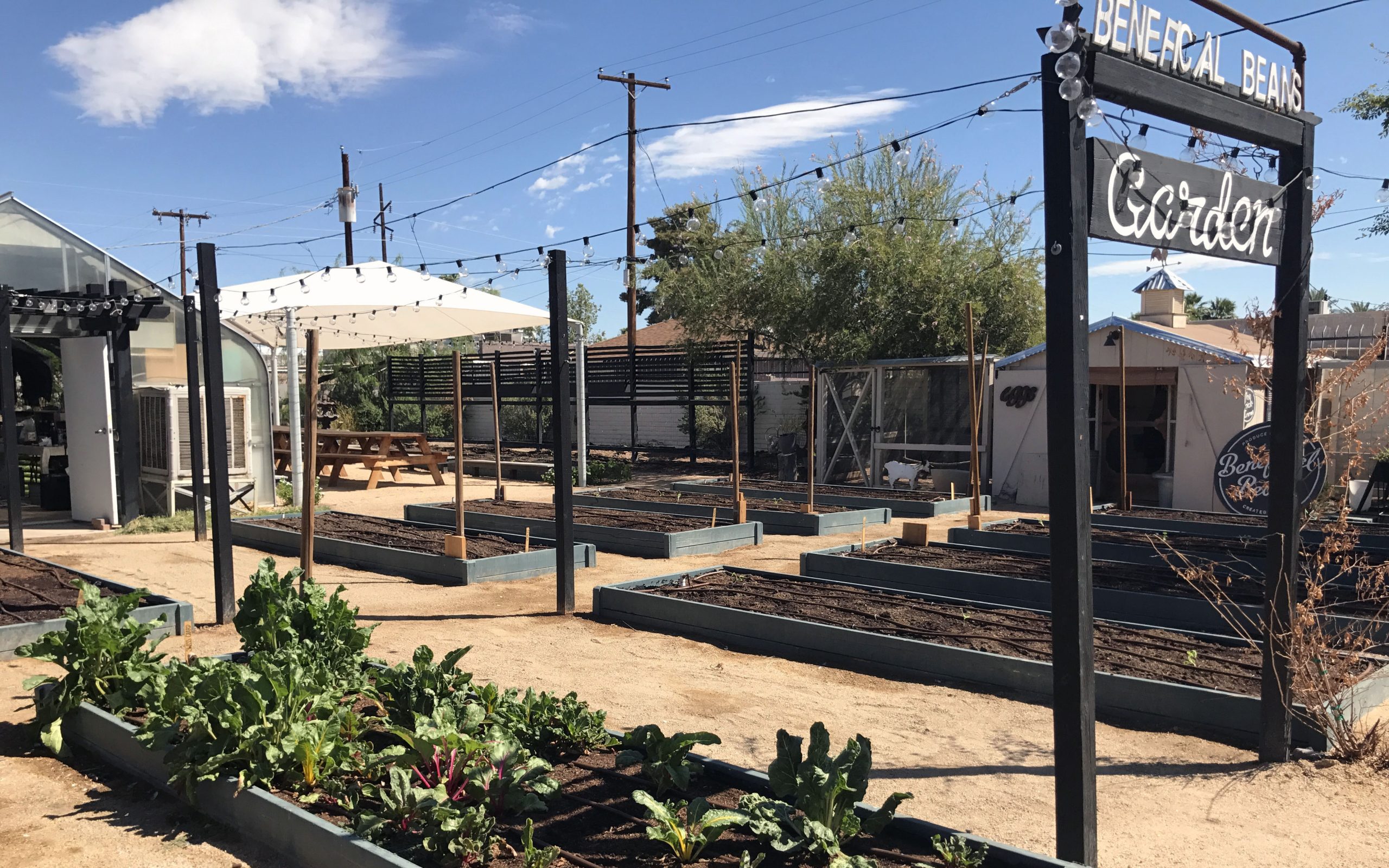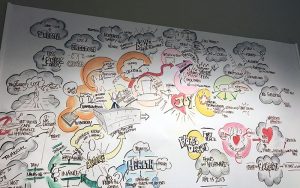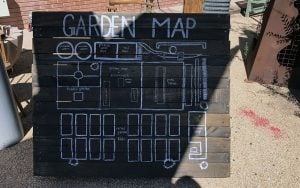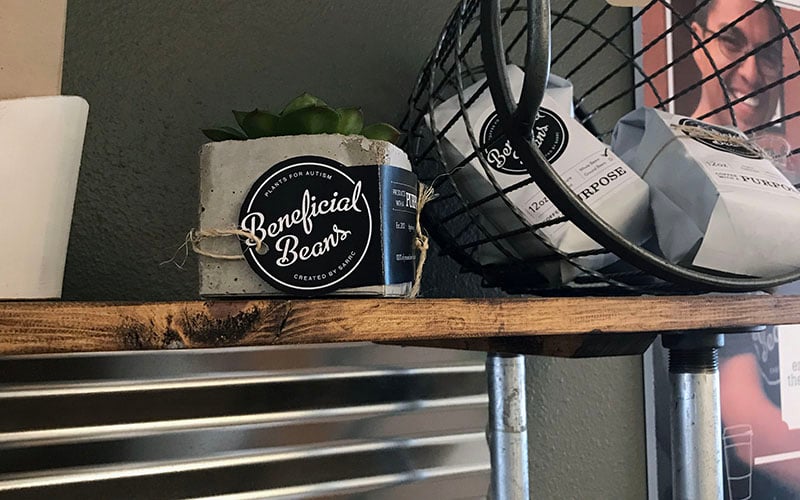
Interning in the Beneficial Beans garden helps adults with autism learn social behaviors and time management. (Photo by Samantha Pouls/Cronkite News)
PHOENIX – Denise Resnik carefully places the blueprints on a shelf because she wants them on display. They illustrate Resnik’s nearly 20-year journey to create an inclusive community housing project for her son and other adults with autism.
“A looming question for families like ours, is what’s going to happen when we’re no longer able to care for (our son),” said Resnik, founder and CEO of First Place AZ, a nonprofit in Phoenix. “The answer is a supportive community.”
She said she wanted a place where her 26-year-old son Matt Resnik and others could learn to live on their own.
“So, as much as we would love to put our arms around Matt and keep him safe and secure with us always, truly his best future is going to be realized by more people knowing who he is and what he has to offer. That gives us, as his family, greater peace of mind,” Resnik said.
Resnik created the First Place Transition Academy where adults with autism participate in structured classes aimed at teaching them how to become self-sufficient, where they address loneliness, finances and housing. The nonprofit’s new residential community will be its first property to offer supportive housing for adults with autism.

Hopes and Dreams Fears and Nightmares drawing illustrating common fears and hopes of parents of individuals with autism.(Photo by Samantha Pouls/Cronkite News)
According to the Autism Society, more people are being diagnosed with autism, but the rate of jobs and independent housing remains relatively low. According to the National Autism Indicators Report, only 14 percent held a job and about half live with a parent or relative.
Resnik said that First Place became a sister nonprofit to the Southwest Autism Research and Resource Center five years ago. While SARRC aims to detect autism at early ages and educate communities on integrating people with autism into professions, First Place helps them transition into independent adult life and provides a lifelong supportive community.

Social interactions are one area adults with autism need help with. SARRC provides counseling and training in order to develop these skills. (Photo by Samantha Pouls/Cronkite News)
“First Place, as its name describes, may be the first place that you live after you leave the family home, but it may not be the only place that you live. It’s there to help support individuals so that they can learn how to better live more independently, and then perhaps move onto their next place,” Resnik said.
The residential community is expected to open in spring 2018 and will be home to 55 units ranging from studios to one- and two-bedroom apartments. Resnik said philanthropy and a loan funded the project.
Resnik said 80 to 90 percent of individuals with autism struggle to obtain employment. Paige Raetz, director of the Transition Academy at SARRC, said these social barriers are a main reason individuals with autism fail to become employed, because a lot of what has to be done to obtain a job – such as interviews and follow-ups – depend on social interactions.
“When we work with an employment partner, we do some initial training so they can better understand what autism is and what it isn’t. Then we work with them to identify how they might support someone in their employment space,” Raetz said.
SARRC offers internship programs in order to help adults and teenagers on the spectrum learn how to better communicate.

Beneficial Beans is one internship provided by SARRC for adults with autism. (Photo by Samantha Pouls/Cronkite News)